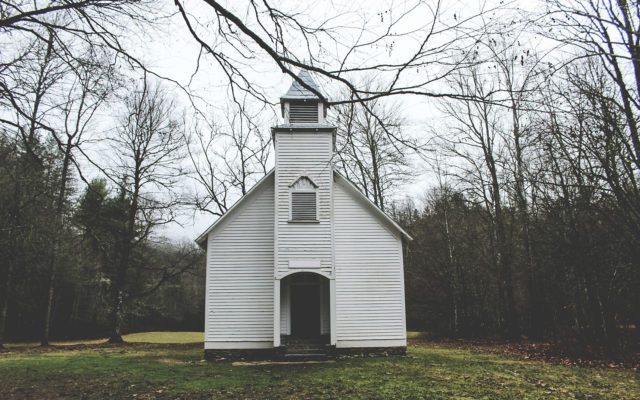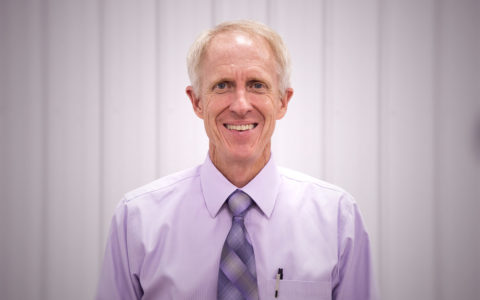We are a confessional church, and have substantial agreement with the 1689 London Baptist Confession. For those interested in the confession in it’s entirety, please visit this page.
On the Scriptures:
We believe the Old and New Testaments are the inerrant, infallible, inspired Word of God in its original documents. We also affirm the doctrine of Sola Scriptura, which is the proclamation that Scripture is sufficient to serve as the church’s sole infallible rule of faith for all matters of doctrine and practice.
On God:
We believe that God is eternally existent as three persons in one essence; God the Father, God the Son, and God the Holy Spirit.
On Christ:
The Second Person of the Trinity is Jesus Christ, the Son of God. We affirm the virgin birth of Christ, His nature being fully God and fully man, His sufficient and substitutionary atonement on the Cross, and His death and bodily resurrection. We also believe that He will come again to judge both the living and the dead.
On the Holy Spirit:
We believe that the Holy Spirit regenerates sinners, indwells believers, and enables them to live godly lives and to use the spiritual gifts He has given them.
On Salvation:
We believe that man is saved by grace alone through faith alone to the glory of God alone. We deny that works can, in whole or in part, be stated to be essential for man’s justification before God. However, while we believe that man is justified (declared righteous) before God through faith alone, true, saving faith is always accompanied by obedience to the Lord and produces fruit (good works).
On the Final Judgment:
We affirm the existence of heaven and hell. All who belong to Christ will spend eternity in God’s presence. All who are not brought to a saving knowledge of Christ will fall under the judgment of God and be eternally damned.
On the Church:
We believe in both the local and universal Church; the first being the local body of believers in a congregation, the second being a declaration that the bride of Christ is His elect – members of the holy catholic (universal), and apostolic Church. We believe in two sacraments to be observed by the Church: Baptism and the Lord’s Supper. Neither are a means of salvation.
We are committed to the Doctrines of Grace as outlined by the Synod of Dort of 1618-19:
1. The Total Depravity of Man
2. Unconditional Election
3. Limited (or definite) Atonement
4. Irresistible Grace
5. Perseverance of the Saints
For both growth and peace in the assembly, the saints and especially the elders must make every effort to emulate the Lord Jesus Christ Who is full of grace and truth. (John 1:14)
Fullness of truth means that we should be willing to teach and discuss all passages of Scripture and all topics related to life and godliness to which the Scriptures speak, not avoiding even the most controversial, uncomfortable of self-condemning subjects. We must speak, not only of the love of God, but also of His holiness and the holiness He desires in His people. This is a joyful holiness because it is convicted (i.e., convinced in one’s heart) by the Holy Spirit, empowered by the Holy Spirit, motivated out of a growing love for Christ and rooted entirely in Scripture not straying into prideful legalism which goes beyond the Word of God.
Full of Grace means we should make every effort to deal humbly, charitably, peaceably, patiently and tenderly with each precious saint. This grace is the foundational characteristic which produces gentle shepherding, just as pride is the fundamental vice that leads to tyranny.
Scripture is our sole and sufficient standard for Christian living and pleasing Christ. Our conscience must be bound to Scripture alone, never to a creed, a confession, a denomination or a man. Although we thank God for good men and are incredibly grateful for good creeds, we are bound to Scripture.
The Biblical goal of the church and its ministry is to encourage and nurture the saints toward Christ likeness, not to pressure, demand or threaten Christian lambs. Though we do not withhold any truth of Scripture or its valid implications for belief or behavior, we leave the personal application to the individual homes and the headship of the husbands and the oversight of the Holy Spirit. The only matters the elders must be insistent upon are the following things: immorality, heresy, divisiveness, and orderliness in the church meeting.
No saint comes into the meeting as a blank slate. We all have a history, both positive and negative, which will color our perspective in how we hear truth and apply truth. Mature shepherds will take this into account in how they discipline the saints.
No shepherd is perfect in character or ability, so he can best serve the Lord and His people in a plurality where his weaknesses are balanced by the strengths of his fellow elders and by the input of other godly saints in the flock.




